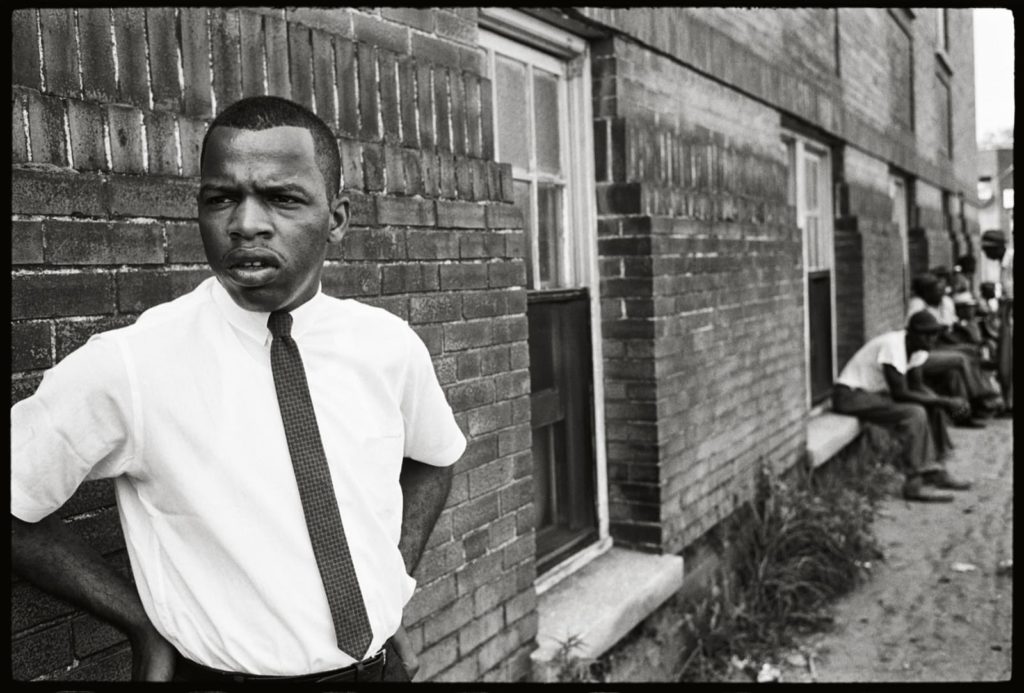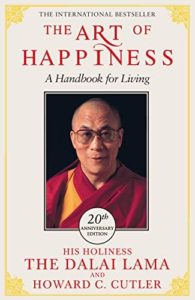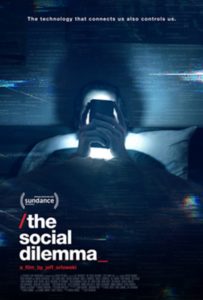“I urge you to answer the highest calling of your heart and stand up for what you truly believe.”
— John Lewis
During a year that is characterized by radical change and upheaval, I have adopted a commitment to my daily reflective writing practice, to maintain a sense of regularity for self-care, and to try to meet the demands of these times for deep introspection. Typically, I start by noting the weather—to prime my writing well, so to speak, and anchor me in the quality of the day.
As I write this morning, the breeze is light and cool on this last summer holiday weekend heralding the start of autumn. It is a strange feeling, writing editorials that reflect the current moment with the realization the actual words will be read weeks later. Such is the limit of journal publication deadlines and production processes, which contrast with the more immediate production-consumption rate of news that we now endure on a daily basis.
What do I say to readers now, realizing this Fall issue of JHR will not be in your hands until after one of the most pivotal elections in American history? At a time when we will be faced with even more untold deaths due to the anticipated rise in COVID-19 infection rates as temperatures drop across the Northern hemisphere? What do I say in September for a November publication when nearly every week this year we hear the word “unprecedented” to describe another news cycle? These are strange and challenging times.
Yet, what endures across this field of rehabilitation science is a dedication to the core values of humanism, integrity, and truth-seeking through critical inquiry. I am grateful to be part of a profession that aligns itself with a collective effort toward compassionate healing—healing on not just an individual but a societal level. I admire the fierce dedication to service that characterizes those who are moral agents of change. I am honored to be living in the same city of Atlanta where the venerable civil rights leader and United States Congressional Representative John Lewis resided, as he truly embodied what it means to be a fearless moral agent of change.
In his last essay1 published shortly after his death, Representative Lewis reflected on the hope he felt about our next chapter in history when he observed in recent weeks that “millions of people motivated simply by human compassion laid down the burdens of division,” and that around the country and the world they “set aside race, class, age, language and nationality to demand respect for human dignity.” He calls us forth to recognize that we are complicit if we choose silence in the face of injustice. Importantly, he lays a framework to offer context to a historical struggle that we are right to apply to our field of rehabilitation science:
“You must study and learn the lessons of history because humanity has been involved in this soul-wrenching, existential struggle for a very long time. People on every continent have stood in your shoes, through decades and centuries before you. The truth does not change, and that is why the answers worked out long ago can help you find solutions to the challenges of our time. Continue to build union between movements stretching across the globe because we must put away our willingness to profit from the exploitation of others. Though I may not be here with you, I urge you to answer the highest calling of your heart and stand up for what you truly believe. When historians pick up their pens to write the history of the 21st century, let them say that it was your generation who laid down the heavy burdens of hate at last and that peace finally triumphed over violence, aggression and war. So I say to you, walk with the wind brothers and sisters, and let the spirit of peace and the power of everlasting love be your guide.”
Pulling from my Summer newsletter, I want to re-emphasize our commitment to Representative Lewis’ call to act and do our part to “stand up, speak up and speak out.” At JHR, we believe the humanities serve a fundamental role within healthcare to address uncertainties and offer opportunities to reimagine a more equitable and just future. This underlying belief rings true now more than ever, as we work to dismantle the systemic racism that has plagued Black bodies and communities for centuries. I do not think we can move forward toward true change until we recognize the fundamental need for humanism in healthcare. We at JHR are eager to use the journal as a platform to help our readers see these connections and feel inspired to become moral agents of change.
One of the ways the humanities can be used as a vehicle to address this work is by highlighting the value of individual stories and collective narratives. JHR is committed to publishing articles that explore these narratives more deeply while discussing the role they play in the work of rehabilitation professionals and within the context of our society.
Where can we go from here?
The COVID-19 pandemic has unveiled an uncomfortable truth about our world and how deeply rooted our problems with racial injustice and health inequity are in our society. So, what do we do? We believe, in moments like these, that the next right step begins with seeing each other more clearly and using the humanities as a conduit for exploring the lived experience of others, especially those of our patients and colleagues of color.
We are designating a themed series dedicated to topics of social justice as well as the experiences of people caught in the COVID-19 pandemic in each JHR issue moving forward. We encourage our readers to consider sharing their reflections and perspectives as we forge deeper connections together to envision our collective future.
Emphasizing the qualities of humanism, the noted Boston College Theologian Roberto S. Goizueta states that, when each of us learn “how to embrace our common vulnerability and suffering, then we are free to live lives committed to justice, committed to freedom.” As witnesses to this part of our collective human experience especially inherent in the disability journey, we are uniquely poised in this world of rehabilitation to participate in the healing not only of our patients but also of each other and society.
Our Fall 2020 issue of JHR offers us opportunities to sit in that space of humanities for critical reflection and exploration. The articles and essays include:
The Value of Art History in a Pandemic: Teaching as a Healing Force
By Siobhan Conaty, PhD
In this powerful reflection, Siobhan Conaty shows how art history as a health humanities discipline can provide two uniquely different (yet equally important) teaching methods for students reckoning with a health crisis. One negative (a critical reading of graphic pandemic images) and one positive (looking to art as a powerful healing instrument), each serves an important purpose. Conaty details the positive approach she recently chose for her students—emphasizing art as a healing force.
A Challenge From the ‘Otherside of America’: Perspectives From a Black Clinician
By Oluremi Wanjiru Onifade, PT, DPT and Sarah Caston, PT, DPT, NCS, GCS
In this stirring account, Oluremi Wanjiru Onifade and Sarah Caston present an honest and compelling look at the challenges within the physical therapy educational community for Black and brown people. Onifade paints a picture of her life growing up as a Kenyan/Nigerian queer-identifying Black American, and the obstacles she overcame on the path to her DPT. Her account ends where she challenges her colleague Caston: “There is a lack of representation of Black and brown people teaching in your PT program. Are you willing to do something?”
In response, Caston describes how that direct question changed her perception as an educator. She asks, “What does it look like for me, a white, heterosexual, cis-gender woman, to stand up to racism? And again, I ask, what does it look like for the profession of physical therapy to do the same?”
Healing Hands: A Street Medic in the Twin Cities Uprising
By Michael Rosentreter, PT, DPT and Jaime González, PT, DPT, OCS, SCS
This unique reflective narrative presents a harrowing account of a clinician’s experience trying to heal the wounds of demonstrators during the Twin Cities uprising this past spring. Rosentreter vividly describes navigating flash grenades, tear gas, and other threats as he provides medical support to demonstrators. The experience helped him realize how valuable the role of a physical therapist in emergency settings truly is. Reflecting on the lessons learned during those nights, he realized, “However elevated the risk to me, nothing I experienced compares to the fear and danger people of color continually face.” He states his commitment to the role of advocacy in physical therapy to recognize and dismantle systemic, institutional, and individual racism.
A Letter to My Mother
By Ezeoyibo Justin Otiwu, SPT
An homage to a devoted Charge Nurse, “A Letter to My Mother” lovingly shows what makes a true hero in today’s healthcare system. Otiwu ’s mother works nights with her COVID-19 patients without complaint and returns home to serve as a caregiver. This letter is a call-to-action for a new perspective on our essential workers, and poignantly drives us to reckon with the question of “how will we advocate for much-needed change to help the system’s valiant fighters?”
Black Lives Matter and Social Justice Resources
By Jennifer Sharp, PT, DPT, CCS and Janna Marshall, SPT
In alignment with our ongoing series dedicated to addressing social change, we offer a list of humanities-based resources for the Black Lives Matter movement and social justice. The materials accessed through the links offered here address art, beauty, dance, ethics, health issues, humanities education, movies, music, writings, and the Black experience in academia and the workplace. Readers are invited to access it frequently to educate themselves, self-reflect, and either begin or add to their journey toward being consistently anti-racist.
COVID-19 Resources
By Jamie Fleshman, SPT
To help JHR readers find inspiration, intellectual stimulation, and even some entertainment during these days of crisis and necessary isolation, we have compiled a list of COVID-19 resources. The materials accessed through the links offered here address ethics, disability, a wide range of the arts, education, and clinical information—all collated from a humanities perspective.
The Science of Successful Learning: Applications to Physical Therapy Education
By Leda C. McDaniel, PT, DPT and Mark A. McDaniel, PhD
Co-author of the book Make it Stick: The Science of Successful Learning, Mark McDaniel offers his insights into the importance of questioning the “erroneous intuitions and common practices” within contemporary education. The book highlights the faulty ways people often go about learning, and explains the research supporting how learning and memory actually work and can be optimized.
In applying these concepts to physical therapy education, Leda McDaniel, Mark McDaniel’s daughter, presents three key learning techniques described in Make It Stick. Having successfully employed these techniques over the years, Leda notes how they can help students “overcome challenges in acquiring the foundational knowledge and skills needed for physical therapy practice.”
Learning Sciences in Curricula: Making Excellence in Physical Therapist Education Stick
By Steven Ambler, PT, DPT, PhD, MPH, CPH, OCS
This companion piece to the McDaniels’ article builds on their arguments for improved learning and applies them to physical therapy education. Steven Ambler advocates for the integration of Learning Sciences in physical therapy curricula. “Curricula that position the student, faculty, and profession as learner, and consider the plurality of learning theories, can help us all reach a deeper sense of what it means to be a physical therapist serving society,” he notes.
My Father’s Journey
By Susan S. Deusinger, PT, PhD, FAPTA
In a poignant personal account, Susan Deusinger details her father’s final months and his ultimate decision to take charge of his own death process. Although his passing left a void in her life, she notes that he also gave her “the privilege of honoring his beliefs and supporting his choices—something we don’t always have the opportunity to do as clinicians.” A video interview accompanies this piece, in Deusinger’s own words.
Communicating in the Silence: Mental Health and Cultural Considerations in the Deaf and Hard of Hearing Population
By Marcela Almeida, MD and Katherine Kosman, MD
“Communicating in the Silence” focuses on the challenges that deaf and hard-of-hearing (DHH) patients can face when seeking mental healthcare. Marcela Almeida and Katherine Kosman detail the barriers to care of one DHH young man, whose “medical diagnosis and treatment path were substantially changed by a more careful assessment that considered the unique aspects of the DHH population.” The authors’ recommendations for the future include an argument for greater use of Certified Deaf Interpreters in healthcare.
Social Context and Ambivalence in Medicine: A Book Review of Doctors at War: Life and Death in a Field Hospital
By Sean Halpin, MA and Mariano Dossou Kpanou
In their insightful review of Doctors at War, Sean Halpin and Mariano Dossou Kpanou highlight the importance of the book’s account of how a medical team operated on the front lines of war in Afghanistan in 2011. “Few studies examine how teams work together in extreme and challenging environments,” the authors note. But this short and intense book “provides a unique glimpse into how these teams function in real time.” Reading it may help prepare healthcare professionals “for unprecedented situations, such as the COVID-19 health crisis of 2020,” they conclude.
Vulnerability in Sports and Orthopedic Medicine
By Kate Mihevc Edwards, PT, DPT, OCS
In her narrative reflection, Kate Mihevc Edwards presents her honest self-portrait as an avid runner whose life—and very identity—were altered by injury. But experiencing the vulnerability of losing her very sense of self proved to be a gift over time, she reports. “The work I put in to help me survive and cope made me a better clinician,” she states. She shows how her loss helped her develop a deeper understanding of the importance of empathy in healthcare.
Fall From
By Julia Chevan, PT, DPT, PhD, MPH
Julia Chevan leads us into her experience of a concussion through her moving and intimate poem, revealing the challenge of recognizing a new reality on the road to recovery.
Constellation Syndrome
By Sophie L. Schott
In this exquisite poem, Sophie L. Schott conveys the language that envelops a mother and her infant son, surrounded by complex medical equipment and imagining another narrative, a life not “seen through the telescope of sickness.”
Finalists of the CHEP-JHR Essay Contest
Congratulations to the finalists of the annual physical therapy student essay contest:
In her essay, “Beyond Words,” Amanda Kaufman, PT, DPT, illustrates how providing a space for her patient to tell her full story, during one of her darkest moments, and listening carefully, established the trust that allowed their healing work together to begin.
Grace White, PT, DPT, relates in her essay, “Pride, Prejudice, and Professionalism,” how she used patience, insight, and a clever strategy to overcome her patient’s sexist bias against her and deliver his treatment.
The 2020-2021 CHEP-JHR essay contest is now open!
We are currently seeking submissions from physical therapy students nationwide for the next round of competition. For this essay, we ask students to:
Describe an experience that significantly impacted your professional growth and identity as a future physical therapist, with respect to the public health crises of racism and/or COVID-19.
Click on the link above for more details. We look forward to reading your insights.
Thank you for joining us. We hope you find hope and inspiration in the Fall 2020 issue of JHR.
If you are interested in submitting your work to JHR, please review our Submission Guidelines. If you are considering being a reviewer, please contact Dr. Sarah Blanton: follow the Contact link, indicate the content area you are interested in reviewing, and attach your CV.
1 Lewis, John. Together, you can redeem the soul of our nation. NYTimes. July 30, 2020.
Available at: https://www.nytimes.com/2020/07/30/opinion/john-lewis-civil-rights-america.html. Accessed September 7, 2020.

Steve Schapiro, John Lewis, Clarksdale Miss, 1963. Copyright of the artist and courtesy of Jackson Fine Art, Atlanta.
 The Art of Happiness: A Handbook for Living by The Dalai Lama and Howard C. Cutler
The Art of Happiness: A Handbook for Living by The Dalai Lama and Howard C. Cutler The Social Dilemma. Netflix Documentary
The Social Dilemma. Netflix Documentary



 Member since 2019 | JM14274
Member since 2019 | JM14274


NO COMMENT